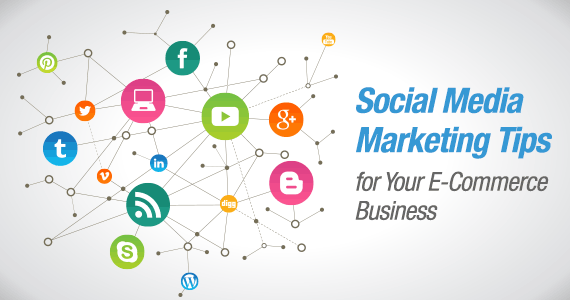 How do you spend your time online? If you’re like most Americans, you’re probably spending 16 minutes out of every hour surfing Facebook, Twitter, Pinterest and other popular social media sites. That’s almost 27% of daily online time!
How do you spend your time online? If you’re like most Americans, you’re probably spending 16 minutes out of every hour surfing Facebook, Twitter, Pinterest and other popular social media sites. That’s almost 27% of daily online time!
Getting Started
If you haven’t already, it’s time to leverage the power of social media for your e-commerce business. The first order of business is setting up Facebook and Twitter profiles for your online store. Facebook and Twitter are considered social media’s “big guns,” so your presence – or absence – gets noticed! Depending on your business’ focus and customer trends, also consider creating Pinterest, YouTube, Google+, and Instagram accounts. Dedicated business accounts on social media platforms give you the chance to connect on a personal level with current and prospective buyers, which can help with both sales and visibility.
Now that you have set up your business accounts for these social media sites, here are a few tips on how to get the most out of them.
1. Set up social share buttons on your e-commerce site. “Like” and linking buttons on your e-commerce site allow shoppers and surfers the ability to showcase their interest in your products via their own social media accounts. Whether they’re sharing their purchases with their Facebook friends or adding your product to a Pinterest pinboard, they’re also marketing for you. Great spots for social share buttons include the order confirmation page, in your sale confirmation email, on product information photos, and on product review forms.
2. Keep content interesting. When it comes to updates, mix it up! Engage your audience with photos of not just products, but of what excites or inspires you as a seller. For example, videos can showcase how-to-wear instructions for clothing stores. Don’t have a video? Share your personal insights! Make your status updates relevant with news or innovative uses of your products. Don’t forget to include clickable links!
3. Keep straight sales talk to a minimum. Remember to keep the social in social media! Don’t constantly be pushing your products – instead, engage your customers with advice, insight from behind the scenes, and other ways to promote community and conversation. Encourage them to speak up about their views and provide feedback about your store. The more invested they are in your content, the more likely they are to visit your e-commerce site to shop.
The Bottom Line
It stands to reason that social media sites are where your shoppers are spending their time – and so should your business. Clearly, it’s more important than ever to leverage social media’s power for your e-commerce business, and following these tips can help you do it effectively.






